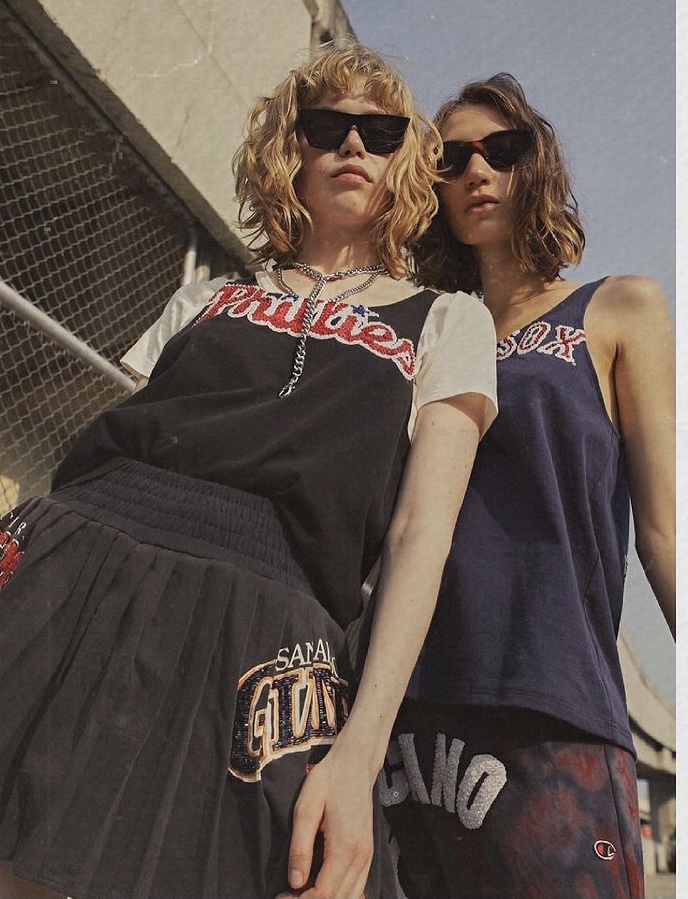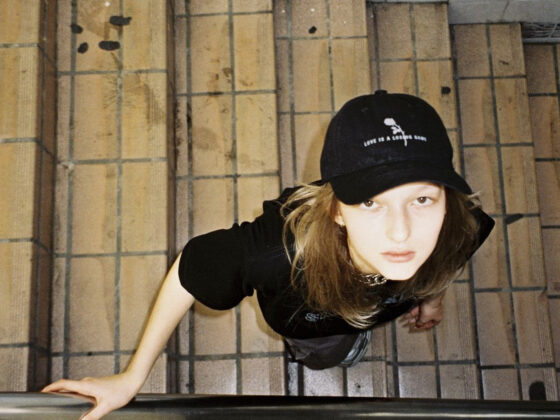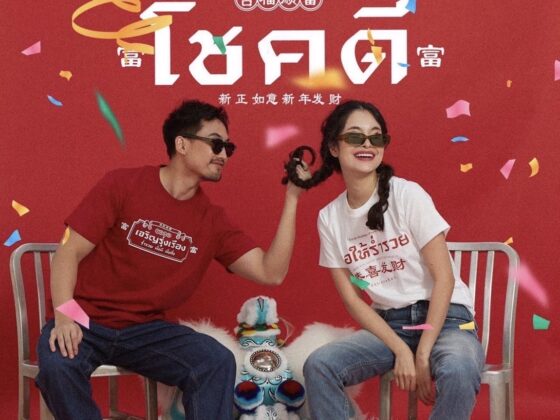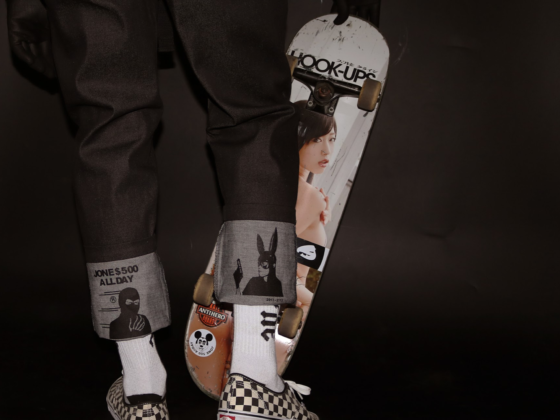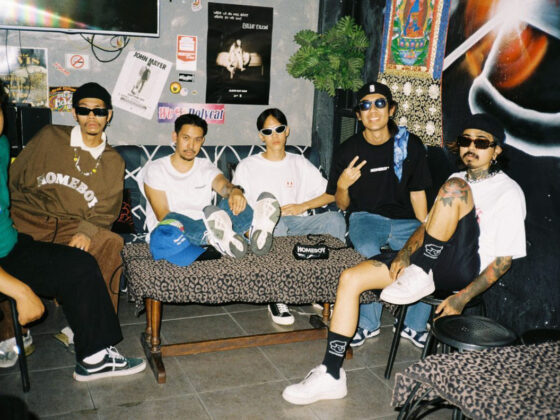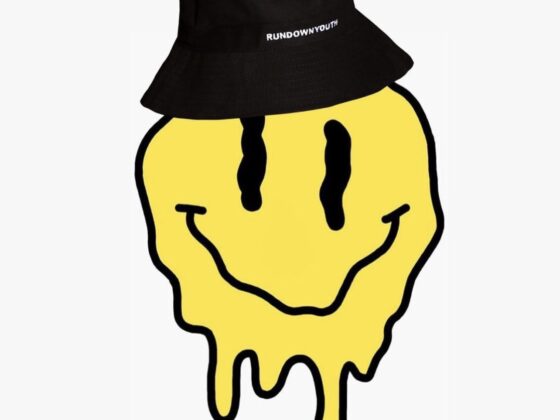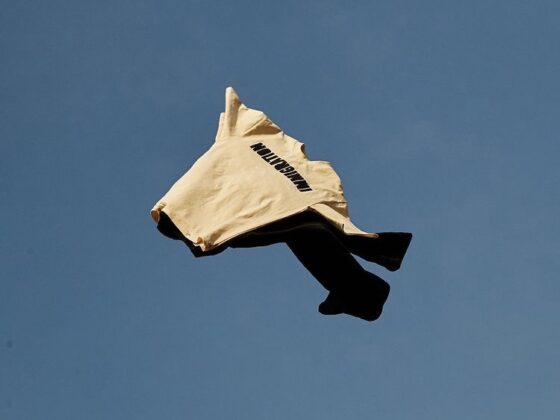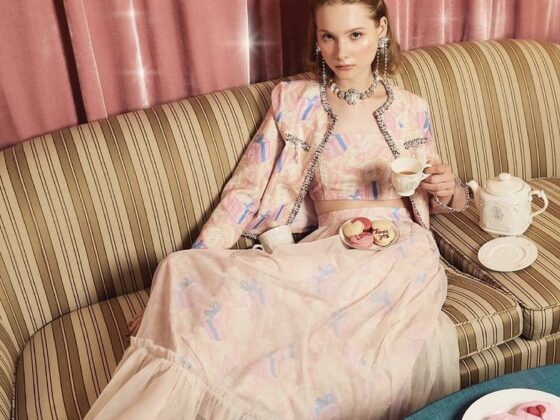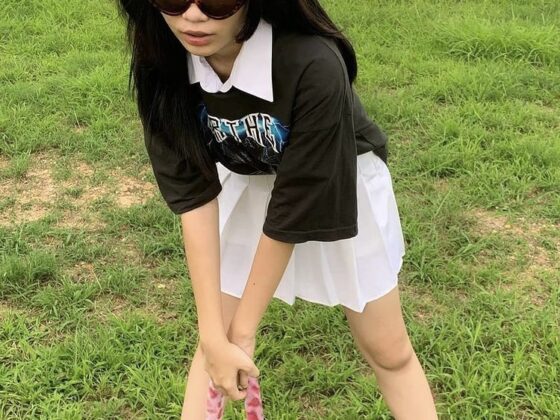In this issue, we feature Panida from I LOVE DIY by Panida as she tells us her love for “upcycle” and “handmade” fashion. While guiding us through her journey in fashion retail and design, we are able to see a glimpse of how she views the world and allows us to recognize the important things in each of our lives.
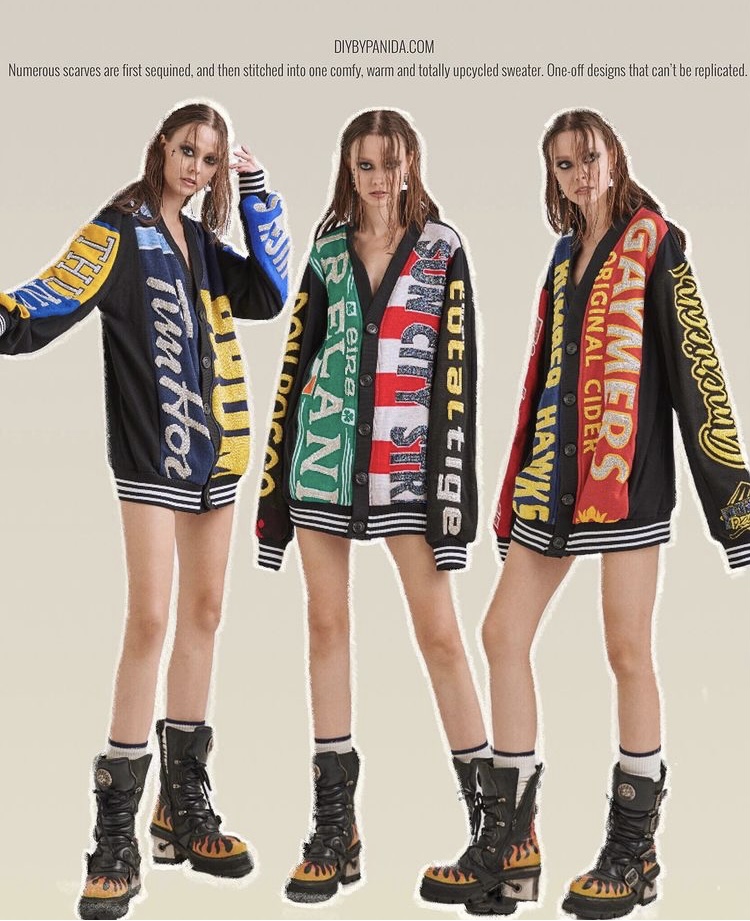
Nana : It’s so nice to finally meet you! First things first, can I first ask about the brand?
Panida : The concept of the brand comes from antiques, everything old school and contrasting it with the new. So typically, it’s about contacting the old and new things. For even things that people might think are old, maybe it’s like a band tee with a cool print and then it has a ripple, we’d be like ok, we can cut out some parts and attach it to something different I guess. Like giving contrast with the old and new.
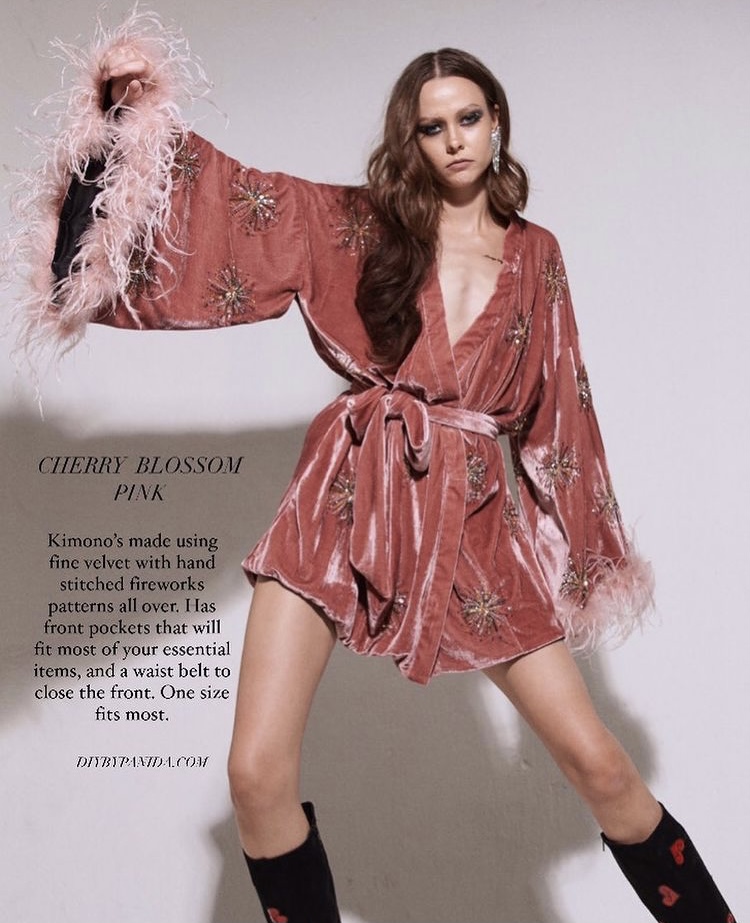
Nana : It’s not vintage though, right? Like creating something out of that.
Panida : Exactly. Like giving new life and value to old things.
Nana : Had you experimented with anything else in fashion before starting the brand?
Panida : Yeah, I used to work in mass production. I had a brand or rather a little store and all the stuff there was mass-produced. It was about ten years ago but we don’t do that now. It was more of a way to make money at that time. It was a “you don’t really want to do but it pays your bills” kind of thing.
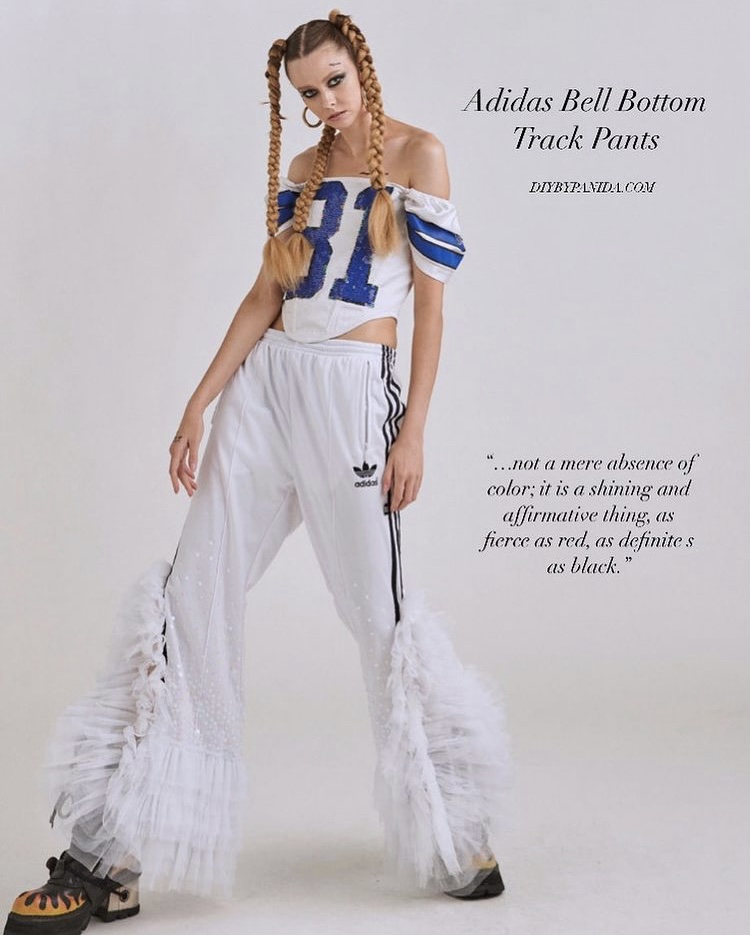
Nana : From that, you got a background in the fashion industry?
Panida : It was more of ordering what you want to the factory and producing it. At that time there was no online stuff so people would come to our stores and buy it directly. But even while I was working there, I was making stuff that eventually became the precursor of the brand we have now. At that time the trend was petite fashion, which was something that I didn’t want to do but had to do to sell.
Nana : Because of the momentum.
How did you name the brand?
Panida : Actually, I did not think too much about the name. I wanted something specific to me but nothing was already used. It’s very straightforward because at least at that time I’m doing everything on my own and I love DIY and it’s made by me. It’s very straight.
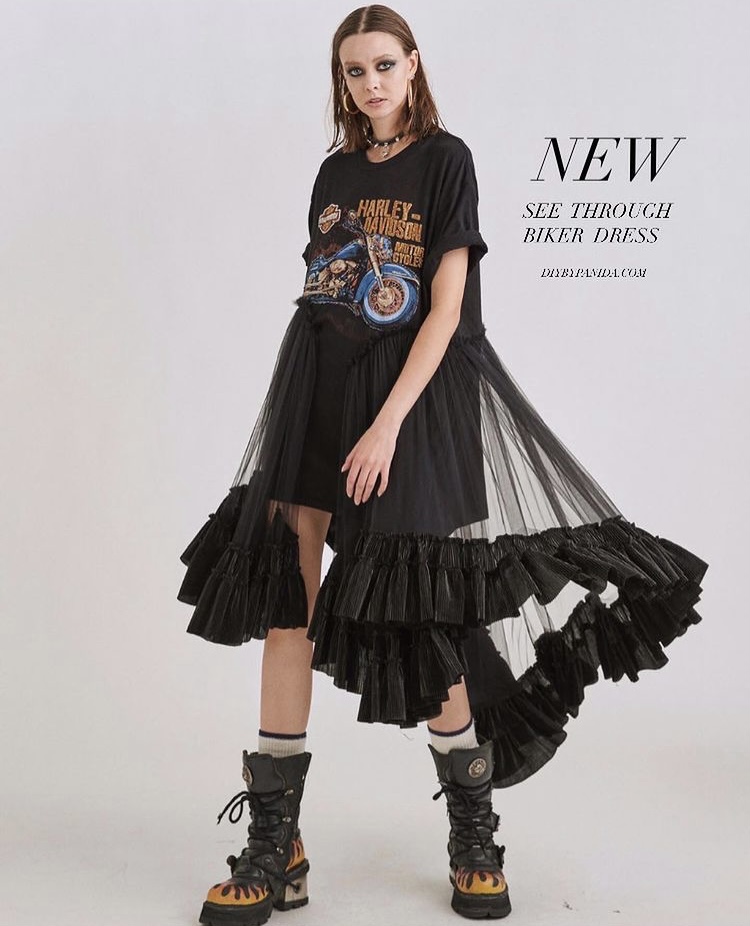
Nana : I feel like the “DIY” aspect is really interesting knowing how you included that in the name.
Panida : Before COVID, a few years ago, a lot of customers would come into our store and would say “Oh this brand is really famous in China” and we’d be like huh? We realized that people suddenly really started to use the term “diy” and people were getting confused.
Nana : It’s probably because you are the pioneer figure in this area.
Panida : Hopefully!
Nana : Is DIY or the idea of recreating outfits becoming a trend in Thailand? Because I feel that was the trend for high fashion in Asia recently.
Panida : Yeah, it seems like a lot of people are following this and the whole cutting and attaching process. But I guess the issue with it is that people find it quite difficult when doing it.
Nana : People like Lisa of Blackpink have been wearing your brand and a fashion icon like her wearing it would influence a lot of people into wearing your clothes.
Panida : What I see a lot is that many people just try to make what she wears that was our clothes and have their own design. Maybe they are people who do DIY on their own and they’d have instructions on how to make it on Instagram. But yeah, she’s had a pretty big impact on us, not gonna lie.
Nana : What has influenced your creations?
Panida : I look into the fashion of the time when certain music became popular if that makes sense. Like old movies and music.
Nana : Is fashion from the 80s or 90s trending in Thailand? Because it became a trend in Japan.
Panida : It seems now, everything is making a circle back. Now that we’re in the United States right now, we see a lot of people wearing stuff that people in the 90s wore.It’s kind of strange seeing this.
Nana : So now that you guys are in the states we see that you have both inspirations from Bangkok and the states. Do you see a difference in the style?
Panida : A lot.
Nana : Do you have a preference for either?
Panida : We’re in Minnesota right now and I wouldn’t consider it a fashion hub but we might be able to answer you better once we’re in LA and get a better sense of fashion there and the trends. We’ll get out there and see.
Nana : Where is your production done?
Panida : We use the factory in Bangkok but we usually make a trip to the states once a year and so we make sure we don’t die or anything. We try to make it so we can design and manage from anywhere and have that freedom.
Nana : I see, is it hard with the time difference?
Panida : Oh, it’s so different. Because it’s an exact twelve-hour difference, we have to be up early and late at times. We kind of came in more prepared now it’s COVID but we have to control the team online.
Nana : You have so many followers on social media and I can assume they’re not all from Thailand but from all over the world.
Panida : I would say, looking at the analytics, Thailand is the most which would make sense, the states is number two and the most would be with Asian countries and countries like Australia.
Nana : Wow, do you get any inquiries over let’s say DM asking whether your brand can distribute to them?
Panida : I guess I see western customers wanting to buy it from the website directly but in Asian countries, it’s the opposite and people are like huh? Do we just pay you directly?
Nana : I know, it is so different.
How did you get discovered to the point where major artists wear your clothes?
Panida : I was surprised just as well about that. Lisa wore an upcycle with a tie-dye shirt with a Harley shirt and some flowers on it. The very first time Lisa wore it, I did not know who she was. And this was even before Blackpink had a single out and she just kept buying from us. Honestly, we don’t know how she started wearing our clothes, which actually feels good because it’s not like we reached out to anybody about it. It’s always nice to see someone like you for you.
Nana : Like her personal favorite brand.
Panida : Exactly.
Nana : It’s really good though since people all around the world will see her wearing your brand and since it’s so unique, people will start discovering your brand.
Panida : Her fan club is defined very fast, they know well before us when she wears our clothes.
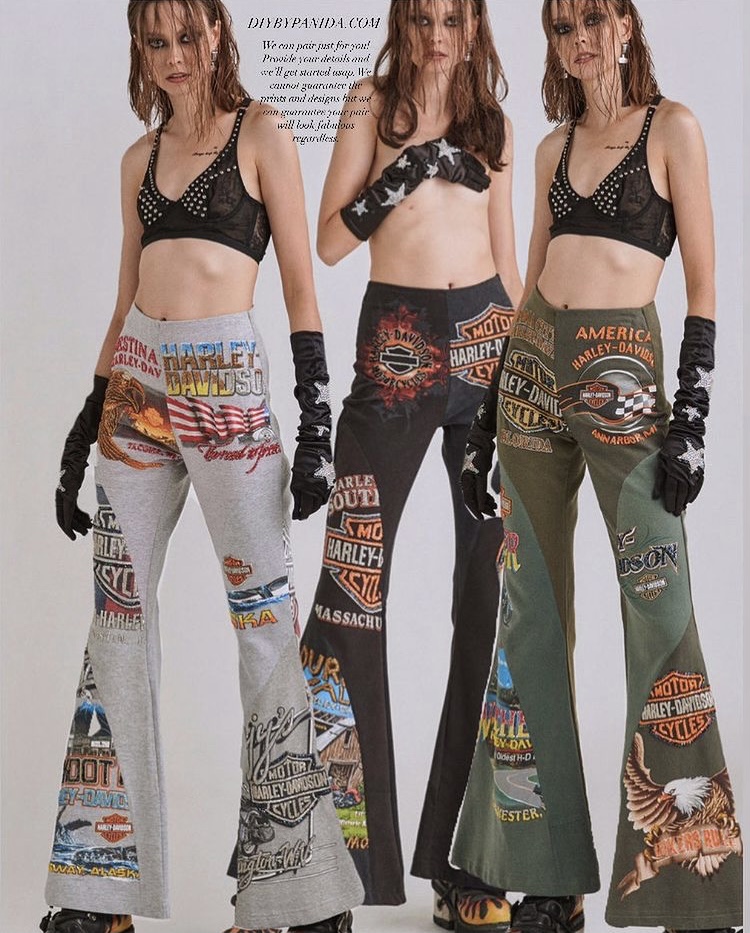
Nana : We know that “upcycle” and “hand made” are a very prominent part of your brand but why do you consider them so important?
Panida : I love everything about it. I try to use new things and trends sometimes, but that’s not me.
Nana : So you’ve made something that you really love.
Panida : I think honestly, if we aren’t able to procure these things, there would be no brand. That’s the main influence for everything.
Nana : Right, there’s a need for balance between business and design and I see many people who go towards means like mass production to fulfill their customer’s wants. And that’s probably what separates your brand.
Panida : I think that’s because I’m being myself. And I do everything to my capacity and accommodating too much would almost be like becoming a traitor to myself.
Nana : Do you have any advice for our readers aspiring to build a brand?
Panida : Do what you really like and support yourself. If money is the primary motivation you probably won’t be 100% happy with what you’re doing. Maybe there are some people like that but if you love what you’re doing, it’s much easier to keep going and put yourself out there. If you that people will see you for the real you.
Nana : It’s interesting because all the designers I’ve interviewed in the past have all said that your happiness is what is most important when doing a business which is different from other Asian countries.
Panida : You need to be happy or else, don’t do it.
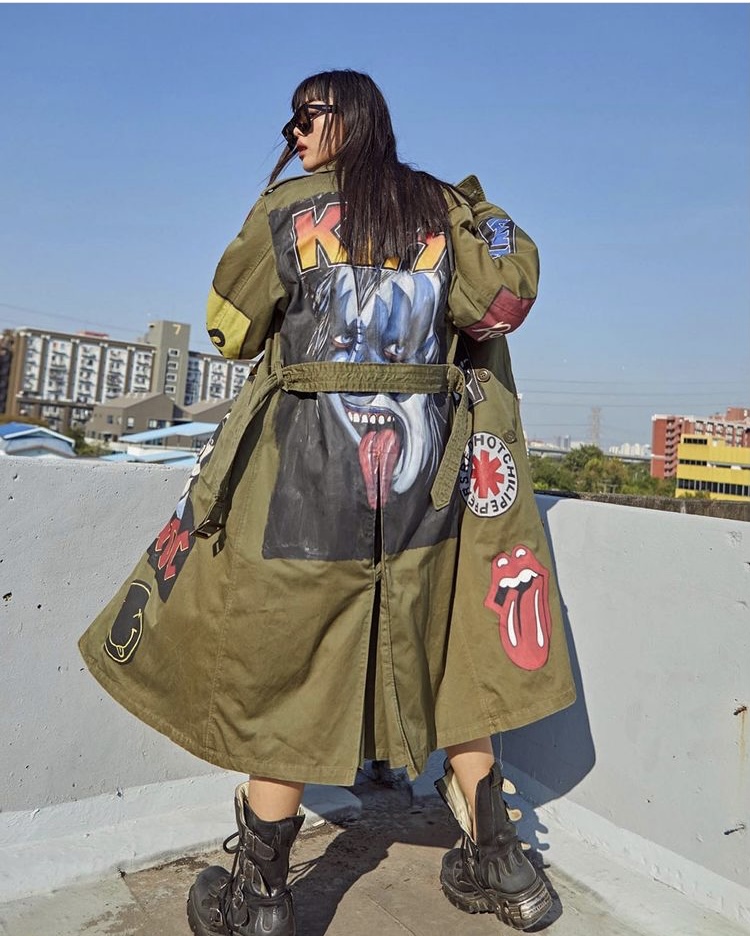
accommodating too much would almost be like becoming a traitor to myself.
Wannawong FROM TAKAWA WONG



